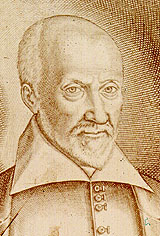A Quote by Thomas Carlyle
Nature is the time-vesture of God that reveals Him to the wise, and hides him from the foolish.
Related Quotes
The best thing is to go from nature's God dawn to nature; and if you once get to nature's God, and believe Him, and love Him, it is surprising how easy it is to hear music in the waves, and songs in the wild whisperings of the winds; to see God everywhere in the stones, in the rocks, in the rippling brooks, and hear Him everywhere, in the lowing of cattle, in the rolling of thunder, and in the fury of tempests. Get Christ first, put Him in the right place, and you will find Him to be the wisdom of God in your own experience.
If we would find God amid all the religious externals we must first determine to find Him, and then proceed in the way of simplicity. Now as always God discovers Himself to "babes" and hides Himself in thick darkness from the wise and the prudent. We must simplify our approach to Him. We must strip down to essentials (and they will be found to be blessedly few). We must put away all effort to impress, and come with the guileless candor of childhood. If we do this, without doubt God will quickly respond.
For here we are so blind and foolish that we never seek God until he, of his goodness, shows himself to us. It is when we do see something of him by his grace that we are stirred by that same grace to seek him, and with earnest longing to see still more of his blessedness. So I saw him and sought him; I had him and wanted him. It seems to me that this is and should be an experience common to us all.
It is human nature to want to believe in the wizardry of the magician--but also to turn against him and to scorn him the moment that he commits the slightest error that reveals his trickery. Those in the audience are embarrassed to have been so easily astonished, and they blame the performer for their gullibility.
It is entirely wrong to think that we have done, or can do, good to the world, or to think that we have helped such and such people. It is a foolish thought, and all foolish thoughts bring misery. We think that we have helped some man and expect him to thank us, and because he does not, unhappiness comes to us. Why should we expect anything in return for what we do? Be grateful to the man you help, think of him as God. Is it not a great privilege to be allowed to worship God by helping our fellow men?
Man is not by any means of fixed and enduring form (this, in spite of suspicions to the contrary on the part of their wise men, was the ideal of the ancients). He is nothing else than the narrow and perilous bridge between nature and spirit. His innermost destiny drives him on to the spirit and to God. His innermost longing draws him back to nature, the mother. Between the two forces his life hangs tremulous and irresolute.
Our passions are the chief means of self-preservation; to try to destroy them is therefore as absurd as it is useless; this would be to overcome nature, to reshape God's handiwork. If God bade man annihilate the passions he has given him, God would bid him be and not be; He would contradict himself. He has never given such a foolish commandment, there is nothing like it written on the heart of man, and what God will have a man do, He does not leave to the words of another man. He speaks Himself; His words are written in the secret heart.






































